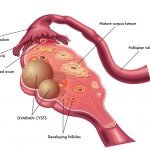When to Recommend Dementia Patients to Stop Driving
Node Smith, ND
Recently, new guidelines have been published in Europe to help physicians navigate when to recommend patients living with dementia to stop driving. The hope is that the tool, ‘Driving with Dementia or Mild Cognitive Impairment’ will help medical professionals with the assessment and management of these patients.
‘Driving with Dementia or Mild Cognitive Impairment’
Researchers from Newcastle University and the National Institute for Health Research (NIHR) Newcastle Biomedical Research Centre have worked to create the guidelines.
Important Guidelines
The guidelines are important, because many people with dementia, especially the early stages, and other forms of cognitive decline, are safe to drive. Since driving gives a tremendous amount of autonomy, it is important they don’t be prevented too early. But the topic can be incredibly difficult to navigate.
Dr John-Paul Taylor is a Clinical Senior Lecturer at Newcastle University, and the Deputy Lead for the NIHR Newcastle Biomedical Research Centre’s Dementia research theme, led the group that developed the guidelines. He said: “This can be a difficult conversation for anyone to have, whether you’re a family member or doctor, because losing the ability to drive can have a significant impact on someone’s independence and wellbeing. However, someone who is no longer safe to drive can be a source of concern for families and loved ones, and may also put the driver and others at risk.”
Group that developed the guidelines included a range of people with various backgrounds
The working group that developed the guidelines included a range of people with various backgrounds, including those affected by dementia, the DVLA, Alzheimer’s Society, old age psychiatrists, occupational therapists, clinical psychologists, nurses and GPs.
The following changes in driving ability are guidelines that have been developed to help practitioners decide if a patient is still safe to drive.
Visuospatial judgement
- Changes to the proximity of the car the individual is driving to stationary vehicles or when overtaking
- Unable to hold a steady course in a defined lane
- Difficulty in following subtle changes in the course of the road
Response to hazards
- Repeated failure to respond in busy environments such as junctions or crossings
Reduction in attention
- Seeming ‘overwhelmed’ in everyday driving situations
Decision making
- Decline in ability to make independent decisions when driving
- Verbal prompt required by passenger
- Over-correction or erratic correction to changes in road direction or the environment
Errors in sequencing
- Failing to release the handbrake
- Failing to check for hazards before moving off
- Trouble changing gears or missed gear changes
Heightened passenger vigilance
- Passengers becoming more aware of changes in driving ability when travelling in the car
- A change from being a passive traveler to providing prompts or cue
Those with dementia have the right to remain independent for as long as possible
Tim Beanland, Head of Knowledge Management at Alzheimer’s Society said: “While a dementia diagnosis isn’t in itself a reason to stop driving, a decision has to be made as to whether someone is still able to drive safely. That decision requires individual judgements which can be clinically difficult and need sensitive handling. People with dementia have the right to remain independent for as long as possible. When being assessed for fitness to drive they have the right to be treated in a fair and open way. We’ve worked with a range of stakeholders including the DVLA to encourage decision-making and communication by professionals to be as dementia-friendly as possible.”
 Node Smith, ND, is a naturopathic physician in Portland, OR and associate editor for NDNR. He has been instrumental in maintaining a firm connection to the philosophy and heritage of naturopathic medicine among the next generation of docs. He helped found the first multi-generational experiential retreat, which brings elders, alumni, and students together for a weekend camp-out where naturopathic medicine and medical philosophy are experienced in nature. Four years ago he helped found the non-profit, Association for Naturopathic ReVitalization (ANR), for which he serves as the board chairman. ANR has a mission to inspire health practitioners to embody the naturopathic principles through experiential education. Node also has a firm belief that the next era of naturopathic medicine will see a resurgence of in-patient facilities which use fasting, earthing, hydrotherapy and homeopathy to bring people back from chronic diseases of modern living; he is involved in numerous conversations and projects to bring about this vision.
Node Smith, ND, is a naturopathic physician in Portland, OR and associate editor for NDNR. He has been instrumental in maintaining a firm connection to the philosophy and heritage of naturopathic medicine among the next generation of docs. He helped found the first multi-generational experiential retreat, which brings elders, alumni, and students together for a weekend camp-out where naturopathic medicine and medical philosophy are experienced in nature. Four years ago he helped found the non-profit, Association for Naturopathic ReVitalization (ANR), for which he serves as the board chairman. ANR has a mission to inspire health practitioners to embody the naturopathic principles through experiential education. Node also has a firm belief that the next era of naturopathic medicine will see a resurgence of in-patient facilities which use fasting, earthing, hydrotherapy and homeopathy to bring people back from chronic diseases of modern living; he is involved in numerous conversations and projects to bring about this vision.










